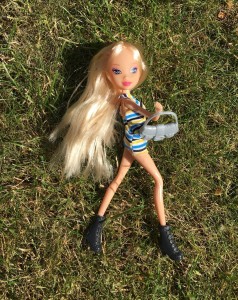The use of plastics has been in the news yet again this week
A suggestion that shampoo bars could replace bottles in the future is one idea cut back on the huge global use of plastics.
It was an issue discussed at the recent ‘Food for Thought talks at the School of Artisan recently by Catherine Conway.
Catherine pioneered the Zero Waste retail business model in 2006, which is now a global trend. At the event, we learnt about the complex issue of packaging and how it touches all of our lives. Catherine tells us what she is doing to address the problem, along with her successes and challenges to the solution.
Plastics certainly helped us get where we are today but we can’t carry on as we are.
Not only is there not enough research into the effect of plastics on our health. It’s in everything. Traces have been found in our drinking water and also in fish from swimming in waters contaminated with it.
We get through 78 million tons of plastic per year. A percentage of that is leaked into rivers. A large percentage goes into landfill. Only 14% is actually collected for recycling, with only 2% finally turned into something useful. Astonishingly the average time someone holds a piece of plastic is for 20 seconds!
Catherine recognised there was a problem back in 2005 and set up a market stall where customers bought their own containers to fill with goods. Many days she didn’t make enough to cover the London congestion charge where she was based.
She started the business from the back of her Nissan Micra, progressing to two market stalls and then a shop when she realised the weight in the car.
She would go straight to the supplier and buy in bulk. People bought into solution and she ended up with a range of over 700 products before getting to the point where the rent was too high and the space was too small. She moved the business to Hackney and added on a restaurant, which she admits, wasn’t executed as well as it should be. However, Catherine had a bigger vision. She persuaded Planet Organic to set up a model so her system fits within a supermarket. She struggled from 2015-2017 but then suddenly everything changed at Christmas 2017, thanks to what she calls the ‘Blue Planet effect’. Following the broadcast of the hit TV series, sales increased by 40% and she was able to open three stalls.
She has now created a frame unit ‘Unpackaged’ which is at the Welbeck Farm Shop making it the first one of it’s kind in the country to introduce a new, zero-waste packaging system. Catherine is keen to open in more farm shops.
Based on the Welbeck estate between Nottingham and Sheffield, the store’s focus on low food miles, artisan food tradition, rigorous taste testing, and waste reduction has earned it a reputation as one of the country’s top farm shops.
‘Unpackaged’ offers a series of refillable dispensers for shoppers looking to reduce the amount of packaging they use. The scheme has been inspired by a more traditional way of shopping, where goods are measured and weighed and do not come in hard-to-recycle plastic packaging.
On offer is an array of cereals, pulses, pasta, rice, nuts, seeds, dried fruit, chocolate and various other raw foodstuffs. The Welbeck Farm Shop has installed the Unpackaged system in bright, well sign-posted area of the store and customers can fill up their own containers and weigh out exactly what they want before taking their goods to the tills.
Offering refills are different from ‘bulk’ shopping, which does not deal with the issue of packaging waste. The weight of any container is automatically deducted from the overall weight of the goods bought and the system is self-service, easy to use, and complies with all legislation on weights, measures and labelling.
Catherine believes Independent retailers have a huge opportunity to beat the big supermarkets to reducing waste – and shopping ‘by refill’ ensures repeat business!
So why refill? Well, there would be 48% reduction in emissions and approximately 120 pieces of packing saved from landfill per year. There’s is also less food waste as consumers can buy exact measures. The supply chain also benefits so bigger margins can be passed onto customers.
In terms of success, there are now 300 shops based on her model around the world
The challenge is to redesign, use new materials, create new systems. Supermarkets are already trying to cut back on the packaging. M & S lasering prices into avocados. There are topless bottles, Bananas dipped in wax to show they are organic rather than using packaging. Some supermarkets are starting to introduce plastic-less aisles.
Deposit return vending machine for plastic aluminium bottles are being turned out and there is also a cup club that uses reusable coffee cups. An app on your phone tells you where you can drop the cup off at disposal points where they’re then picked up and reused.
What are your thoughts? Have you made any changes to your lifestyle or do you plan to?
By Tanya Louise
Editor
@tanyalouise_
tanyalouise.net




